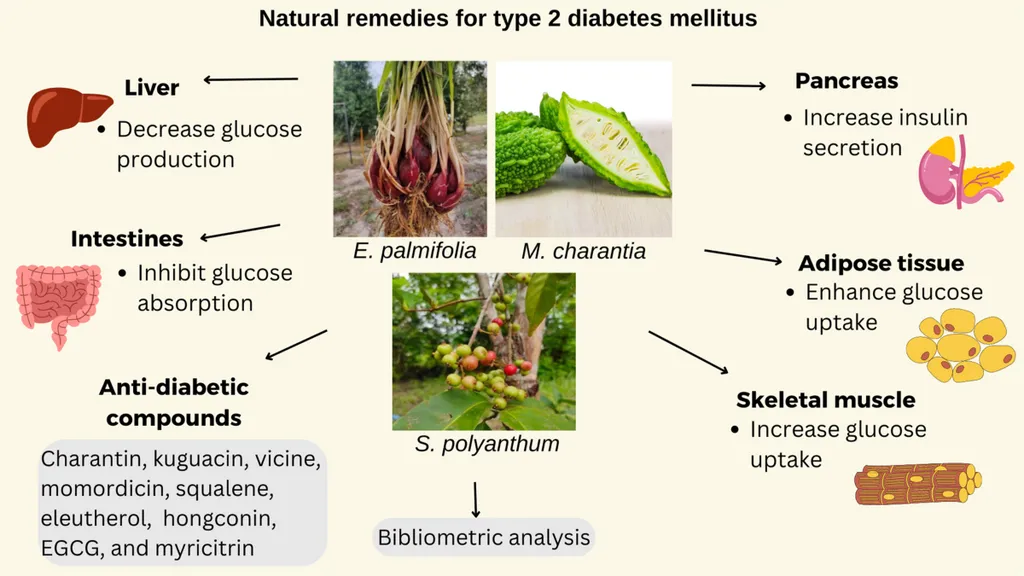In the lush, biodiverse tropics, nature may hold the key to combating one of the world’s most pressing health crises: type 2 diabetes. A recent review and bibliometric analysis, led by Maziah Mohd Ghazaly from the Faculty of Science and Marine Environment at Universiti Malaysia Terengganu, delves into the potential of tropical herbs to modulate gut microbiota and regulate glucose levels, offering a promising avenue for diabetes management.
The study, published in *Food & Medicine Homology* (translated as “食物與醫藥同源” in Chinese), examines the anti-diabetic properties of tropical herbs such as bitter melon, curry tree, garlic, ginger, and noni. These herbs, rich in bioactive compounds, have been shown to influence insulin-related pathways, effectively regulating insulin secretion, blocking glucose absorption, and maintaining glucose homeostasis.
“Our research indicates that these herbal extracts and their bioactive compounds can significantly lower blood glucose levels,” Ghazaly explains. “The alkaloids in these plants act on insulin-related pathways, offering a natural and potentially effective alternative for managing type 2 diabetes.”
The review highlights the metabolic pathways through which these bioactive compounds function, providing a scientific foundation for their use in diabetes treatment. Moreover, the bibliometric analysis integrated into the study offers a comprehensive look at research trends, uncovering emerging topics and assessing the impact of key findings.
The implications of this research extend beyond healthcare, with significant commercial potential for the energy sector. As the global demand for natural and sustainable health solutions grows, the tropical herb market is poised for substantial growth. This research could drive investment in agritech innovations, fostering the development of new agricultural practices and supply chains to meet the increasing demand for these valuable herbs.
Furthermore, the study underscores the importance of preserving traditional knowledge and biodiversity. By understanding and harnessing the power of these tropical herbs, we can not only combat diabetes but also promote sustainable development and economic growth in tropical regions.
As Ghazaly notes, “This research is just the beginning. There is still much to explore and understand about the potential of tropical herbs in diabetes management. But the possibilities are exciting and hold great promise for the future.”
In an era where the intersection of health, sustainability, and technology is more critical than ever, this study serves as a reminder of the power of nature and the potential of innovative research to drive positive change. As we continue to grapple with the challenges of diabetes and climate change, the insights from this study could pave the way for a healthier, more sustainable future.

